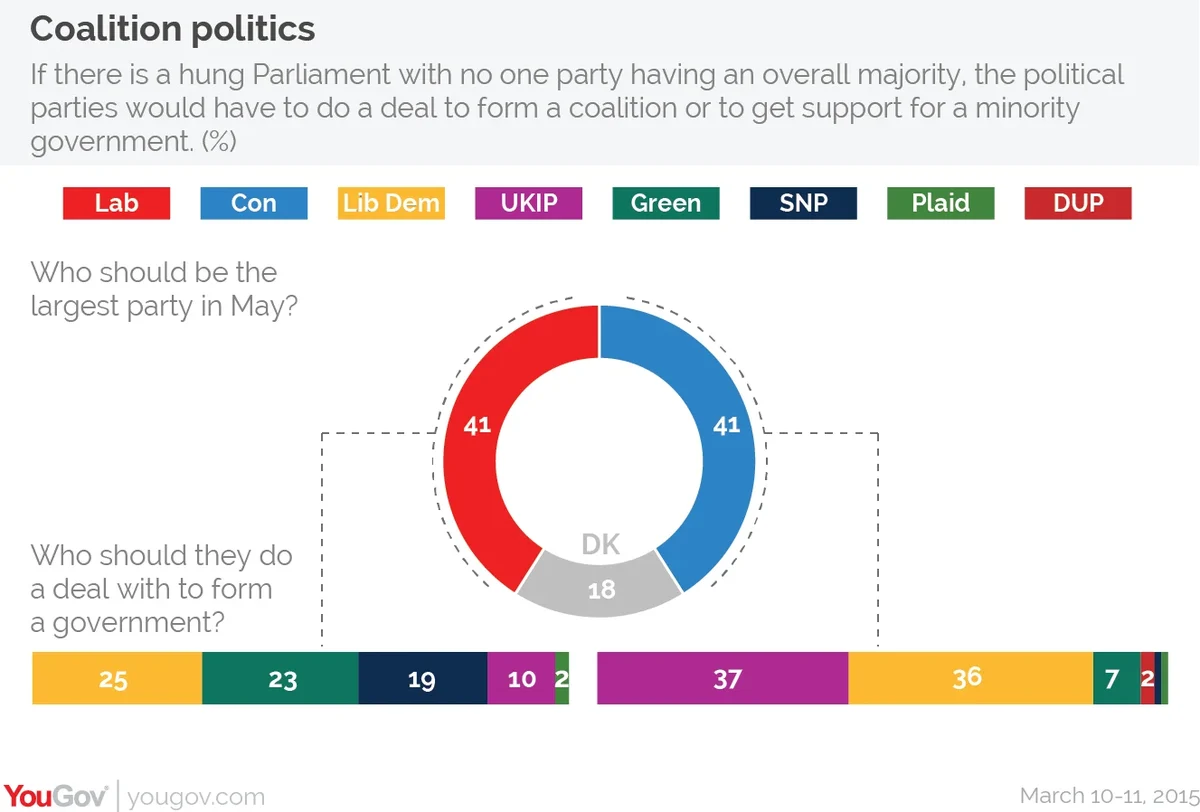Another coalition government is the most likely outcome in May – YouGov looks at what kind of arrangement voters actually want
On May 7th, as with 2010, the most likely outcome is another coalition. And the public will have no say over the backroom negotiations that determine the form of this next government.
New YouGov research reveals what a popular coalition government might look like.
Realistically, only Labour or the Conservatives can win enough seats to head a government this year, and given the forced choice, British people are split right down the middle on which party should get the honour. Both are chosen by 41%, while 18% don’t know who they would prefer.

Liberal Democrats would prefer a Conservative-led government to a Labour one by 50-37%; UKIP voters share their preference by 46-18%.
The Liberal Democrats are in high demand to fill the remaining 60 or so seats required to push either party over the majority threshold of 326. For those who would rather Labour became the largest party, they are the most popular coalition partners (chosen by 25%). For those who would prefer a Conservative-led government, they are the chosen by 36%.
The SNP will almost certainly have the most weight in talks with Labour. Ed Miliband, however, has been under pressure to rule them out of a coalition, and only 19% of Labour backers want them as coalition partners. That said, most (56%) say they should leave open the possibility of a deal with the SNP, although among the population as a whole this is opposed by 43-32% – perhaps because they see a Labour-SNP government as making the possibility of another independence referendum more likely (50% say more likely, 7% less likely and 23% say it would make no difference).
The Greens, on the other hand, could do little to help a Labour-led coalition over the majority line (predictions give them only one seat), but under a more proportional process they would be the second choice to assist Labour (chosen by 23%).
UKIP, meanwhile, are as popular among Conservative backers as the Liberal Democrats (chosen by 37%), although with their support being so spread around the country they would need to be accompanied by Northern Ireland's DUP MPs to bring the Tories over the line.












